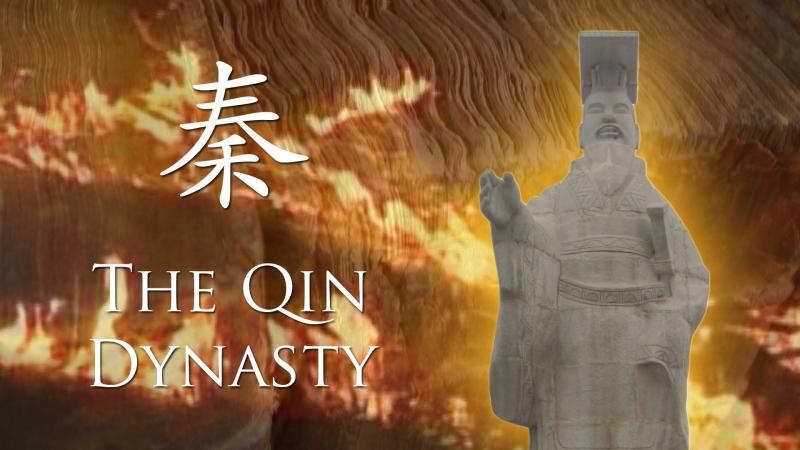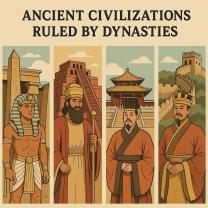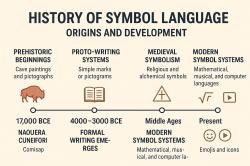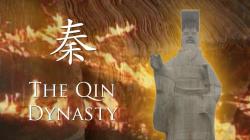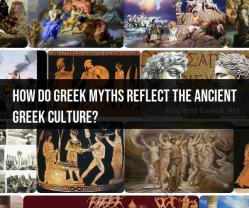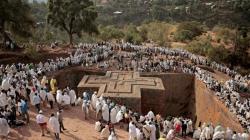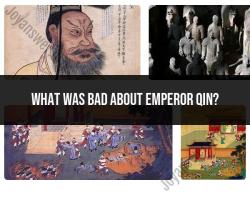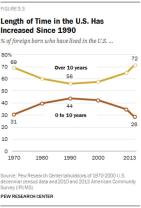What were the religious beliefs of the Qin dynasty?
Religious Beliefs and Practices in the Qin Dynasty (221–206 BCE)
Dominant Belief Systems and Philosophies
Legalism (法家, Fǎjiā) – The Qin state made Legalism its official ideology. Under Qin Shi Huang (Shi Huangdi) the focus was on strict law, central control, and obedience. Legalists taught that people are inherently selfish, so only rigid laws and harsh punishments could secure order. In practice the Qin banned rival teachings: Confucian classics were burned and scholars persecuted. In short, Legalism ruled the public sphere, stressing the emperor’s absolute authority.
Ancestor Veneration and Folk Beliefs – Ordinary people continued traditional folk religion at home. Chinese families customarily maintained household altars to honor ancestors, burning incense and offering food daily or on special anniversaries. These private rites – seen as expressions of filial piety – remained deeply ingrained in daily life. The Qin government, however, discouraged public religious symbols: for example, it banned amulets, charms or rituals not sanctioned by the state. Still, most clans likely continued ancestor worship and local spirit cults privately, even if official approval was withdrawn.
Daoist/Huang-Lao Traditions – Early Daoist ideas (often called Huang-Lao, “Yellow Emperor–Laozi Dao”) circulated in intellectual circles. These teachings emphasized harmony with the natural Way (Dao) and the pursuit of longevity. Qin Shi Huang himself showed interest in Daoist alchemy and immortality: he amassed manuscripts on elixirs and even sent expeditions to find magical herbs. However, Daoism was never an official state religion under Qin; it influenced elites mainly through personal beliefs about life extension and balance.
Role of Religion in Governance and Imperial Authority
Imperial Rituals and Sacrifices – The Qin emperor portrayed himself as mediator between Heaven and Earth. In 219 BCE Shi Huangdi performed the great Fengshan sacrifice on Mount Tai, offering to Heaven (fēng) and Earth (shān) in a single ceremony. This ritual announced the founding of his unified empire and sought divine sanction for his rule. It was a revival of ancient Zhou rites: by sacrificing on the sacred mountain, the emperor symbolically aligned his authority with cosmic order. In effect, state-sponsored sacrifices became key to legitimizing the Qin throne.
Centralizing the Cult of Deities – The Qin regime centralized worship of high gods under imperial control. Shi Huangdi “personally held sacrifices to Di (the Highest Deity/Heaven) at Mount Tai” and at special altars. He also ordered the Five Forms of God (五方上帝, wǔfāng shàngdì) – deities of the five directions/elements – to be worshipped in unified state temples. By bringing these cults together, the emperor signaled that all cosmic forces served the Qin state. In short, religious rites were co-opted into the bureaucracy: the emperor alone conducted the grandest ceremonies, reinforcing his semi-divine status.
Emperor’s Divine Image – Shi Huangdi adopted a new exalted title (皇帝, Huángdì, “August Emperor”) with echoes of the legendary Yellow Emperor. While he did not claim outright godhood, this title and his rituals implied a special link to the heavens. In practice, the Qin used religious symbolism to bolster authority: public rites and sacred titles underscored that the emperor’s power was heaven‑ordained, even if Qin ideology officially emphasized law over morality.
Key Rituals, Deities, and Cosmological Beliefs
Mount Tai (Feng-Shan) Sacrifices – The Feng and Shan ceremonies on Mount Tai were the most important state rituals. In Qin times these ceremonies were first recorded in 219 BCE, when Shi Huangdi “paid tribute to the mountain in the Fengshan sacrifices” to report his unification of China to the gods. The rite involved offerings to Heaven (at the summit) and Earth (at the base), embodying the idea that the empire’s success was in harmony with the cosmos.
Five-Deity Cult (Wǔfāng Shàngdì) – Qin theology included the ancient concept of five directional gods (Black / North, Red / South, etc.) who rule the four cardinal points and center. Previously these gods were honored at different sites; Shi Huangdi consolidated their worship in a single set of temples under imperial supervision. This reflected the belief that the Qin emperor’s authority encompassed all corners of the universe. (Above all these stood Shàngdì or Tiān, the “Highest Deity” of Heaven, to whom the emperor offered special sacrifices.)
Ancestral and Local Spirits – Although the Qin official religion focused on high deities, ordinary people likely continued to venerate ancestral and local gods. Archaeological finds and later traditions suggest that even the Qin emperors built ancestral temples, where rites for deceased emperors were performed like those of any royal lineage. In popular belief, countless spirits (land lords, river gods, even ghosts) occupied the countryside. The state generally ignored or suppressed unsanctioned cults, but there is little direct Qin record – the persistence of folk altars and festivals would have been a private matter.
Afterlife Beliefs – The Qin clearly believed in an afterlife. The emperor’s own mausoleum complex reflects this: it contains life‑sized ceramic warriors and horses meant to protect him in the next world. This Terracotta Army shows that the Qin envisioned a continued existence after death, with the deceased ruler retaining his status and needing the same guardians as in life. Thus, funerary rituals and tomb offerings (a longstanding Chinese practice) were integral to Qin religious thinking.
Cosmic Order (Yin-Yang and Five Phases) – Qin cosmology inherited the idea that the world is governed by balancing forces (yin and yang) and cycles of Five Phases (elements). By unifying all under one empire and one emperor, Qin theology implied that the cosmic elements were now centralized. The emperor’s rituals (like honoring the five gods) symbolized this harmony. In effect, Qin ideology claimed that Heaven’s mandate was fulfilled through the Qin order, even if the regime rarely invoked that concept by name.
Religion, Daily Life, and Social Control
Private Devotion vs. Public Prohibition – In everyday life most Chinese still honored ancestors and observed folk rites. They burned incense on home altars and held periodic family ceremonies, following customs unchanged for centuries. However, the Qin state discouraged public religious practice. Public symbols (amulets, talismans) were banned and open worship had to cease. Thus, popular piety continued largely behind closed doors. Notably, ancestor veneration – the core of Chinese religion – was seen as a private, familial duty and was informally maintained, even if the government officially sidelined it.
Legalist Control over Belief – The Qin used Legalist law to control society, leaving little room for independent religion. According to historical sources, under Qin “the people were subject to harsh penalties for breaking even minor laws”. This meant that social order was enforced by fear of punishment rather than by moral or religious norms. The regime’s famous book burnings and executions of dissenters show that ideological conformity (not spiritual pluralism) was the goal. In effect, religion was made subservient to state control: the emperor monopolized grand ritual, while other belief systems were viewed with suspicion.
Ritual as Propaganda – The Qin leadership did use religion strategically. By performing impressive state ceremonies (on Mount Tai, at unified temples, etc.), the regime projected an image of divine legitimacy. These rites were essentially state propaganda tools: they demonstrated to the populace that the Qin emperor had Heaven’s support. At the same time, forbidding alternate worship reduced potential sources of loyalty outside the ruler’s circle. In sum, Qin governance folded religion into its central authority – the state sponsored the rituals it approved, and strictly limited everything else.
Sources: This summary draws on academic histories of Qin China and studies of Chinese religion. Legalism’s influence and Qin policies are described in reference works. The temple ceremonies and cult of deities are documented by scholars of Chinese ritual. Qin funerary beliefs and ancestor practices are attested by archaeology and late historical accounts. These sources together show a Qin era where official belief was tightly controlled, even as traditional cults lived on in private life.
What Were the Religious Beliefs During the Qin Dynasty?
The religious landscape of the Qin Dynasty was a mix of traditional Chinese beliefs, including the worship of nature spirits and ancestors, with a state-enforced philosophical doctrine. The Qin emperor, Qin Shi Huang, held a deep personal obsession with immortality and the supernatural, leading him to sponsor magicians and alchemists in a quest for an elixir of life.
How Did Legalism Influence Qin Dynasty Religion?
Legalism, the state philosophy of the Qin Dynasty, had a profound and repressive influence on religion.
Were There Any Traditional Deities Worshiped?
Yes, traditional deities were still worshipped, but often in secret.
How Did Religion Affect Qin Political Policies?
Religion, particularly the emperor's personal beliefs, heavily influenced Qin political policies. Qin Shi Huang's obsession with immortality led him to invest vast resources into finding magical elixirs and building his massive Terracotta Army for the afterlife. This focus on the supernatural and his own personal legacy came at the expense of his subjects.
What Role Did Ancestor Worship Play?
Ancestor worship remained a deeply ingrained practice during the Qin Dynasty, but its public expression was undoubtedly impacted by the state's policies. While the veneration of one's own family ancestors was a core part of Chinese culture, the emperor himself held a unique position. As the "Son of Heaven," he performed state-level sacrifices to his ancestors, which was a crucial way to legitimize his rule and claim the Mandate of Heaven. This practice reinforced the hierarchical structure of both society and the spirit world, with the emperor at the top, and provided a political tool for maintaining control.
